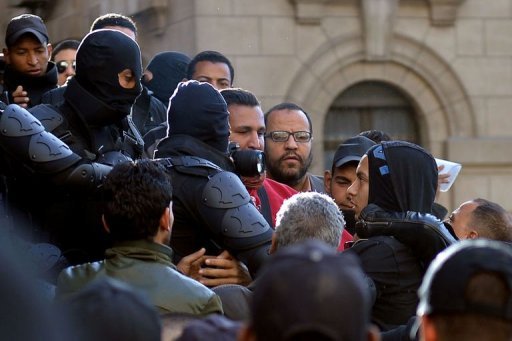AIN EL SUKHNA: I picked up “The Shield of Achilles from my bookshelf and headed to the well-loved Palmera Resort for a breath of fresh air over the Islamic New Year weekend.
I had been prompted to reread Philip Bobbitt’s tome of war, peace and the course of history, because I had met a Norwegian student in the La Bodega Bar on Wednesday night who had just arrived in Cairo to study Middle Eastern politics at AUC.
Mr Bobbitt’s book is relevant because, apparently, everyone who was anyone at
1600 Pennsylvania Avenue a few years back was reading it before they went to bed, dreaming of democratically elected cheerleaders in pom pom skirts west of the Euphrates.
“The Shield of Achilles groups European conflicts over the past 500 years into five Epochal wars that culminated in six major treaties between the great powers of the day, each in turn significantly changed the constitutional make-up of Europe.
The Thirty Years War, 1618-1648, is one such epochal war. Made up of nine major conflicts between, well just about everyone: The French, Spanish, Germans, Bohemians, Swedes, the Dutch, Danes, Poles and the Habsburg dynasty. Mr Bobbitt says there was a single constitutional issue at stake throughout and, to paraphrase, if those States which were Protestant, would remain so, or would they again become Roman Catholic or would the secular model prevail?
Nothing beats a conversation late into the night that puts the world to rights and Mr Bobbitt’s thesis put meat on the bones of Iraq whose carcass is beginning to look like the sun-bleached rib cage of a Serengeti wildebeest.
Like the Thirty Years War, I see the Middle East in the middle of an epochal war. Arab-Israeli War (1948), The Suez War (1956), The Six Day War (1967), Yom Kippur War (1973), Lebanon War (1982), Lebanese Civil War (1975-1990), the Iraq-Iran War (1980-1988), the First Gulf War (1990-1991), US led invasion of Iraq (2003), Israel-Hezbollah War (2006) and the Iraq Civil War (February 2006 saw the bombing of the Askariya Shrine in Samarra – as good a place as any to mark the beginning of this conflict.
Again there is a single constitutional issue at stake with a distinct Middle Eastern flavor: How does religion define a nation’s laws and how does religion define a nation’s borders?
At one stage during the Thirty Years War, the French aligned with the Ottoman Turks, who harassed the southern Habsburg borders thus diverting resources from the struggle over the re-catholicizing of Germanic Principalities.
Remember the Americans supporting Iraq when Saddam Hussein invaded Iran? History – the players change, but the plot stays remarkably the same.
The Peace of Westphalia, 1648, ended the Thirty Years War. It settled various territorial disputes and settled the question of religion in politics by clearly defining the roles of religion within a State and was perceived at the time ‘as a new constitution for the European State System’.
The epochal war is made up not only of wars but of peace treaties. But the war continues because the fundamental questions have not been answered. In 1979 Egypt and Israel signed a peace. But the issues of religion and its historical bond to the land remain the core problem in the region.
The Middle East had only come out from under the thumb of 500 years of Ottoman rule, before it then had to swallow a good dose of European meddling that created states ruled by one party, one king or allegedly one secret police force.
The Shiite-Sunni split, land, resources, water and refugees cannot be solved until all combatants are brought together in a great conference, where the delegates are motivated to draw up treaties, where they can horse trade, bargain and practice diplomacy.
But this motivation will only come when States and those that give them legitimacy want peace. Every century seems to throw up such a protracted conflict powered by some doctrine or ism, steered by the iron wills of emperors, princes, PMs or Presidents, down a road made of bones.
If the Americans are to salvage an image, let alone a people. If Iran is not to become a perennial bottom feeder. If Israel wants more than just one friend. If Palestinian factions can share the loot. If Syria could give up being a square peg in a round hole, and then all decided to give a “swinging peace conference a chance, then who knows, we may see an end to the war in Iraq and an end to the Middle East Sixty Year War.
And if the end is 2008, that will make it all nice and tidy for the historians.

